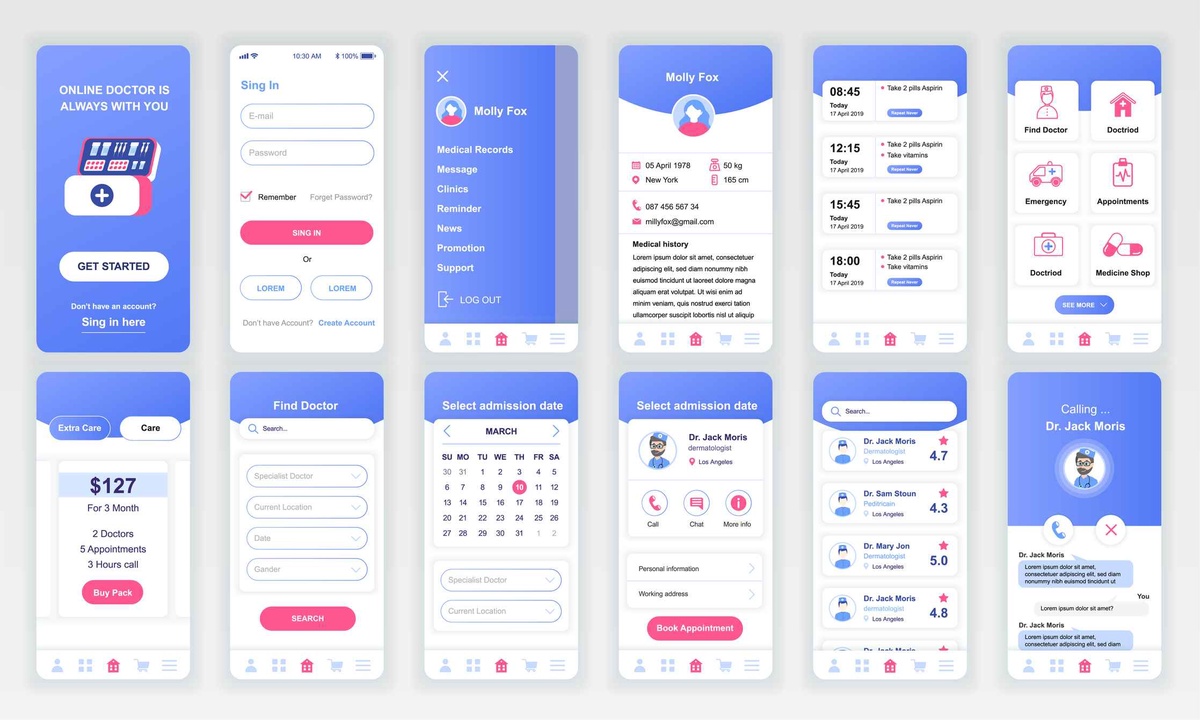In the rapidly advancing landscape of healthcare, technology plays a pivotal role in enhancing patient outcomes, streamlining processes, and improving overall efficiency. One of the key components driving this transformation is software development tailored specifically for the healthcare industry.
The Intersection of Technology and Healthcare
Software Development Healthcare in the USA involves the creation and implementation of applications, systems, and solutions designed to address the unique challenges faced by healthcare providers, administrators, and patients. This intersection of technology and healthcare aims to improve the quality of care, reduce costs, and facilitate better decision-making.
Electronic Health Records (EHRs)

One of the most significant contributions of software development to healthcare is the advent of Electronic Health Records (EHRs). EHRs have replaced traditional paper records, enabling healthcare professionals to access and manage patient information efficiently. This digitalization not only enhances data accuracy but also facilitates seamless communication among different healthcare providers involved in a patient's care.
Furthermore, EHRs eliminate the need for physical storage of paper records, saving space and reducing the risk of damage or loss. They also allow for easier sharing of information between different healthcare institutions, improving coordination of care for patients who seek treatment from multiple providers. Additionally, EHRs can provide valuable data for research and population health management, aiding in the development of evidence-based practices and policies. Overall, the implementation of EHRs has revolutionized the healthcare industry, enhancing patient care and streamlining processes for healthcare professionals.
Streamlining Administrative Processes
Software applications in healthcare extend beyond clinical settings to streamline administrative processes. Practice management software assists in appointment scheduling, billing, and inventory management, optimizing the overall operational workflow of healthcare facilities.
Telehealth Solutions
Recent times have witnessed a surge in the adoption of telehealth solutions, driven by the need for remote healthcare services. Telehealth software allows patients to consult with healthcare professionals from the comfort of their homes, reducing the need for physical visits and enhancing accessibility to medical care.
Additionally, telehealth solutions have proven to be particularly beneficial for individuals residing in remote areas or those with limited mobility. By eliminating the need for travel and providing virtual consultations, telehealth software ensures that patients can receive timely healthcare services regardless of their location. Furthermore, the integration of telehealth into healthcare systems has also contributed to cost savings, as it reduces the expenses associated with transportation and hospital stays. Overall, telehealth solutions have revolutionized the healthcare industry by making healthcare more convenient, accessible, and cost-effective for patients.
Data Security and Compliance

Given the sensitive nature of healthcare data, software development in healthcare places a strong emphasis on data security and compliance with privacy regulations. Healthcare software developers adhere to strict standards to ensure the confidentiality and integrity of patient information, safeguarding against potential breaches.
This includes implementing encryption protocols, secure data storage systems, and access controls to protect patient data from unauthorized access or manipulation. Additionally, healthcare software developers strive to stay up-to-date with evolving privacy regulations and industry best practices to ensure compliance with legal requirements. By prioritizing data security and compliance, telehealth software providers can instill trust in patients and healthcare professionals, ultimately paving the way for the widespread adoption of remote healthcare services.
In addition, telehealth software providers also regularly conduct security audits and vulnerability assessments to identify and address any potential weaknesses in their systems. They also provide training and education to their staff and users about the importance of maintaining data security and privacy. By taking these proactive measures, telehealth software providers can demonstrate their commitment to protecting patient information and mitigate the risk of breaches, ultimately fostering a safer and more secure telehealth environment.By prioritizing data security and compliance, telehealth software providers can instill trust in patients and healthcare professionals, ultimately paving the way for the widespread adoption
Improving Patient Engagement
Software solutions also play a crucial role in improving patient engagement. Mobile health applications empower patients to actively participate in their healthcare journey by providing access to personalized health information, medication reminders, and communication channels with healthcare providers.
Challenges and Opportunities
While the integration of software in healthcare brings about numerous benefits, it also poses challenges. Issues such as interoperability, integration with legacy systems, and ensuring user-friendly interfaces are considerations that software developers must address.
Despite these challenges, the ongoing advancements in technology present endless opportunities for innovation. Healthcare software development is evolving to incorporate emerging technologies like artificial intelligence, machine learning, and the Internet of Things, further enhancing the capabilities of healthcare systems.
Conclusion
In conclusion, software development in healthcare is a dynamic and transformative force, reshaping the landscape of patient care. From electronic health records to telehealth solutions, the impact of technology on healthcare is profound. As the industry continues to embrace innovation, the collaboration between healthcare professionals and software developers becomes increasingly crucial, paving the way for a future where technology and healthcare work seamlessly together for the benefit of patients worldwide.
This collaboration allows for the creation of cutting-edge applications and tools that improve diagnoses, treatment plans, and patient outcomes. Additionally, software development in healthcare enables the efficient management of medical resources and streamlines administrative tasks, freeing up valuable time for healthcare professionals to focus on providing quality care. As technology continues to advance, the possibilities for further innovation and improvement in healthcare are endless, and the role of software development will only become more vital.


No comments yet